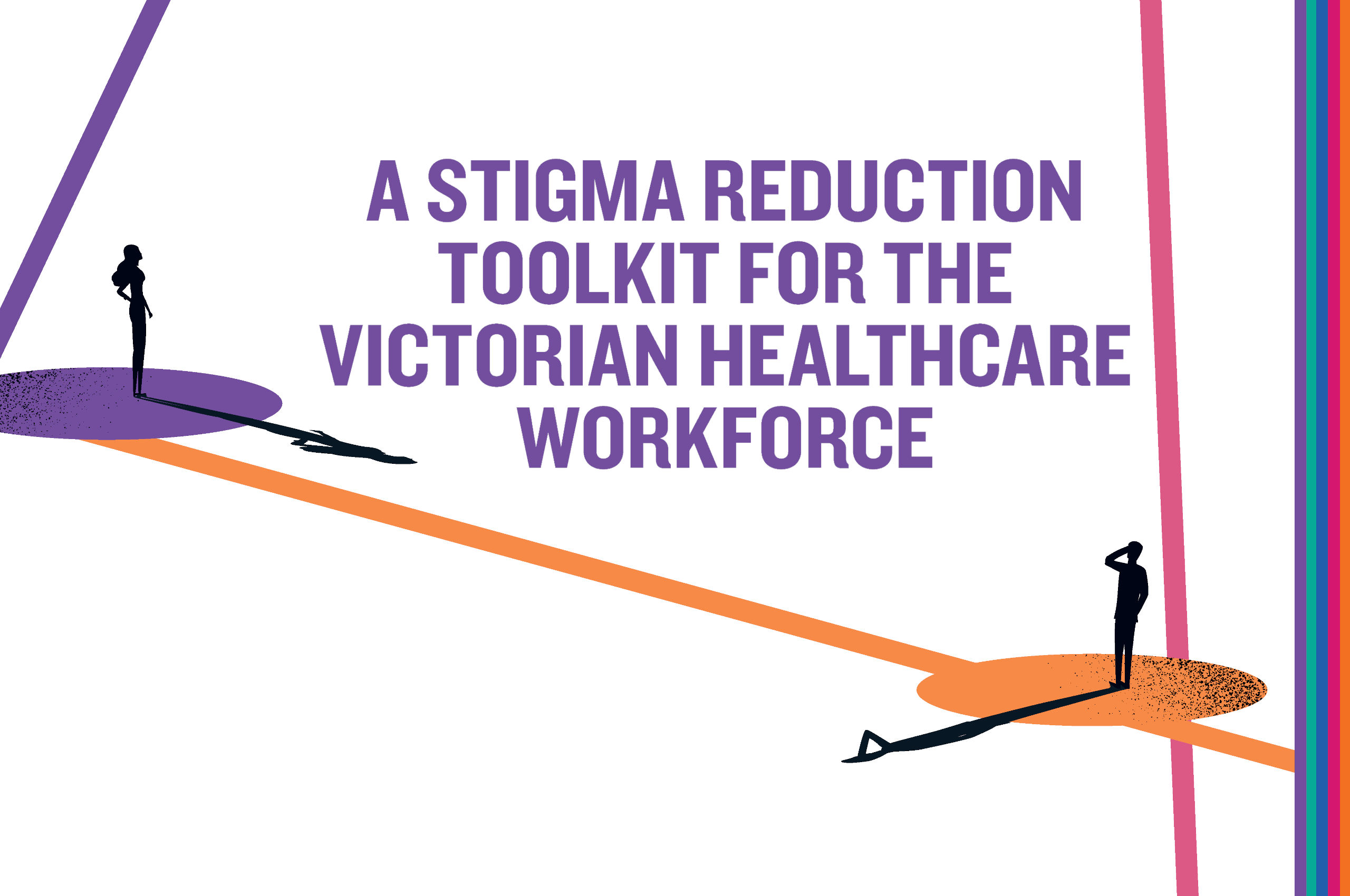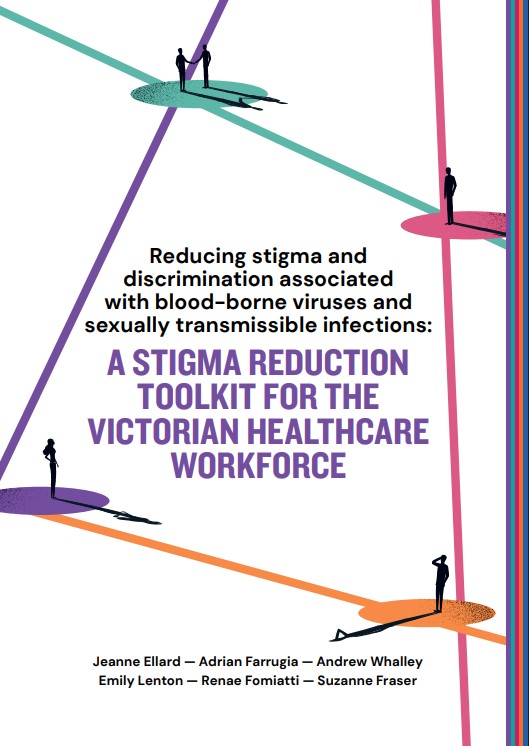Blood-borne viruses and sexually transmissible infections

A stigma reduction toolkit for the Victorian healthcare workforce [2022].
Stigma and discrimination are key issues for those affected by blood-borne viruses (BBV) and sexually transmissible infections (STI). They can hinder healthcare access, complicate intimate relationships, increase social isolation, and undermine trust in healthcare services. BBV and STI-related stigma is often inseparable from other forms of stigma related to sexuality, gender identity, or race, and research has long shown healthcare settings are key sites in which stigma is experienced. The effects of stigma related to BBV and STI in healthcare are far-reaching, limiting access to prevention, testing and treatment, and undermining the trust required for effective therapeutic relationships.
Most research on BBV- and STI-related stigma and discrimination within healthcare settings has focussed most on analysing how stigma manifests and much less on how to address it. This project addresses this gap by investigating the strengths and weaknesses of available BBV and STI-related stigma and discrimination reduction tools and developing a toolkit in collaboration with end users, that is the BBV and STI healthcare workforce. While the toolkit is for use by BBV and STI health services, the broader aim of the toolkit is to improve health outcomes for the clients and patients of these services.
BBV and STI stigma reduction toolkit and implementation guide:
Reducing stigma and discrimination associated with blood-borne viruses and sexually transmissible infections: A stigma reduction toolkit for the Victorian healthcare workforce. 
This toolkit was produced to provide Victorian healthcare services and professionals with a succinct and practical resource to support their efforts to reduce the stigma experienced by people living with and affected by blood-borne viruses (BBVs) and sexually transmissible infections (STIs) when accessing healthcare
Implementation guide for ‘Reducing stigma and discrimination associated with blood-borne viruses and sexually transmissible infections: A stigma reduction toolkit for the Victorian healthcare workforce' 
This implementation guide outlines a process for planning and then implementing initiatives drawn from the strategies and resources available in the BBV and STI Stigma Reduction toolkit.
Implementation workshop resources
Slides for the stigma reduction toolkit implementation workshop
Part 1: Acknowledgement of Country, agenda and workshop background - Watch video
Part 2: Panel discussion on developing allyship and building connections - Watch video
Part 3: The toolkit in practice and legal and policy reform - Watch video
Researchers
Professor Suzanne Fraser, Dr Adrian Farrugia, Dr Renae Fomiatti, Dr Jeanne Ellard
